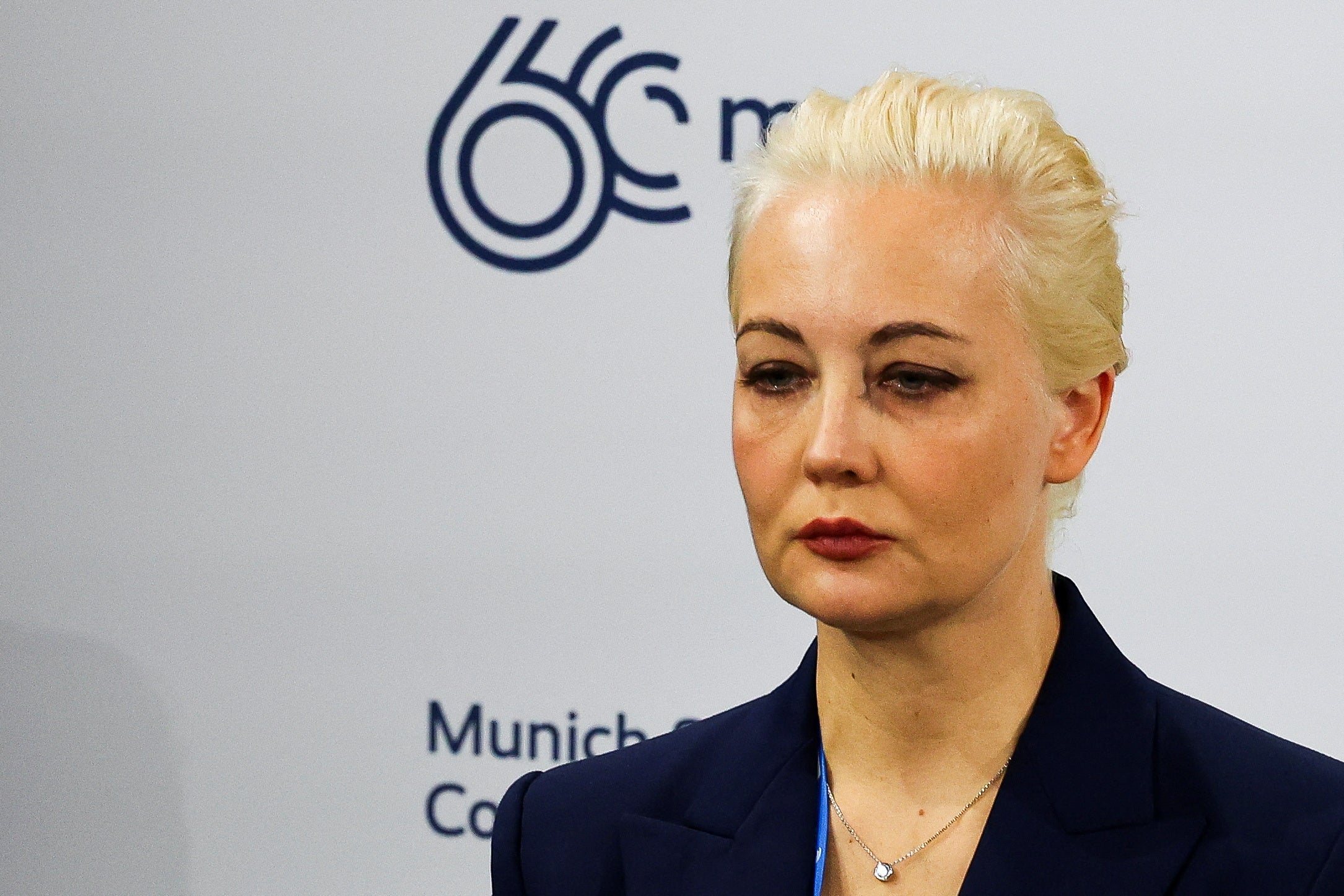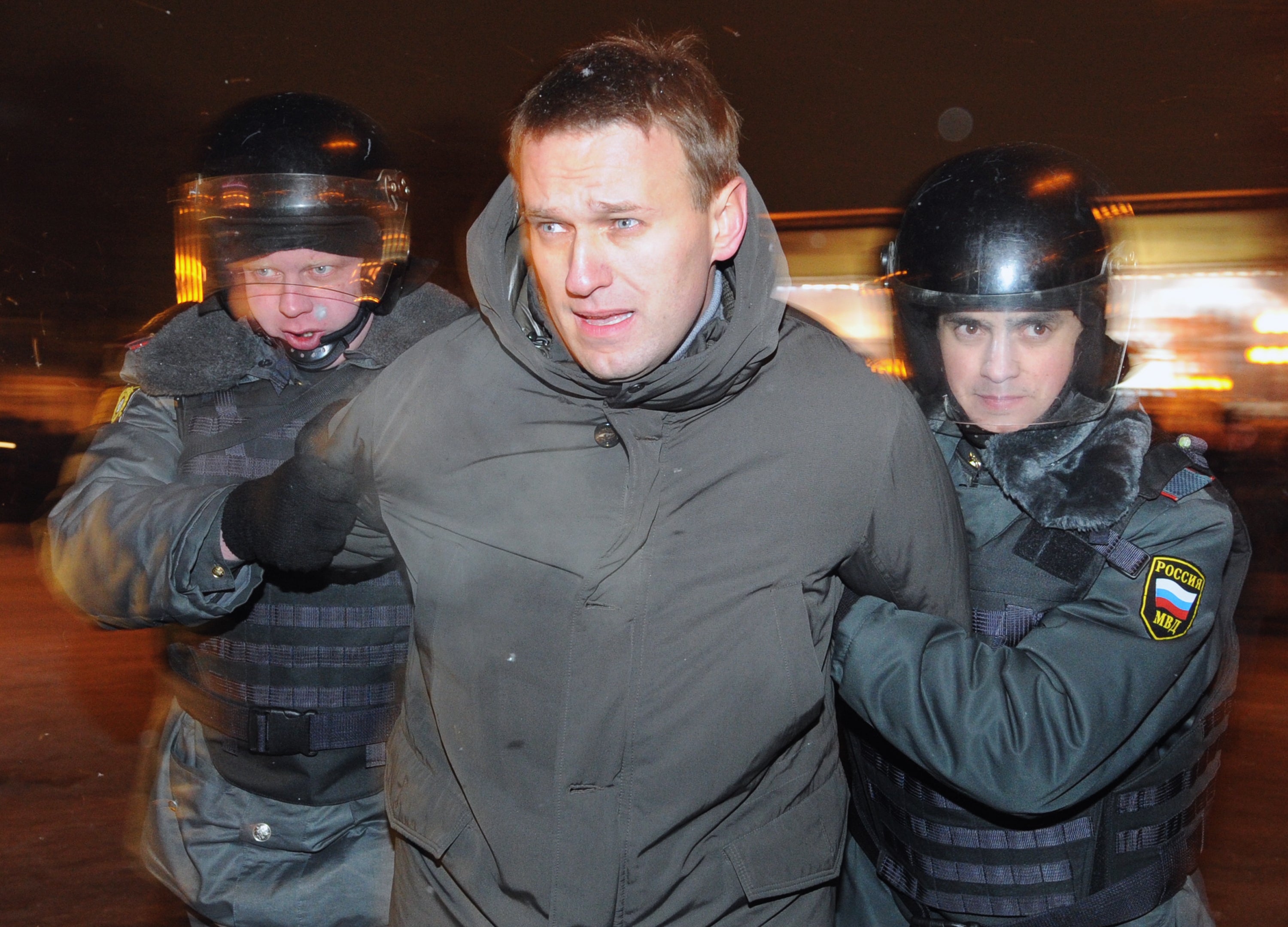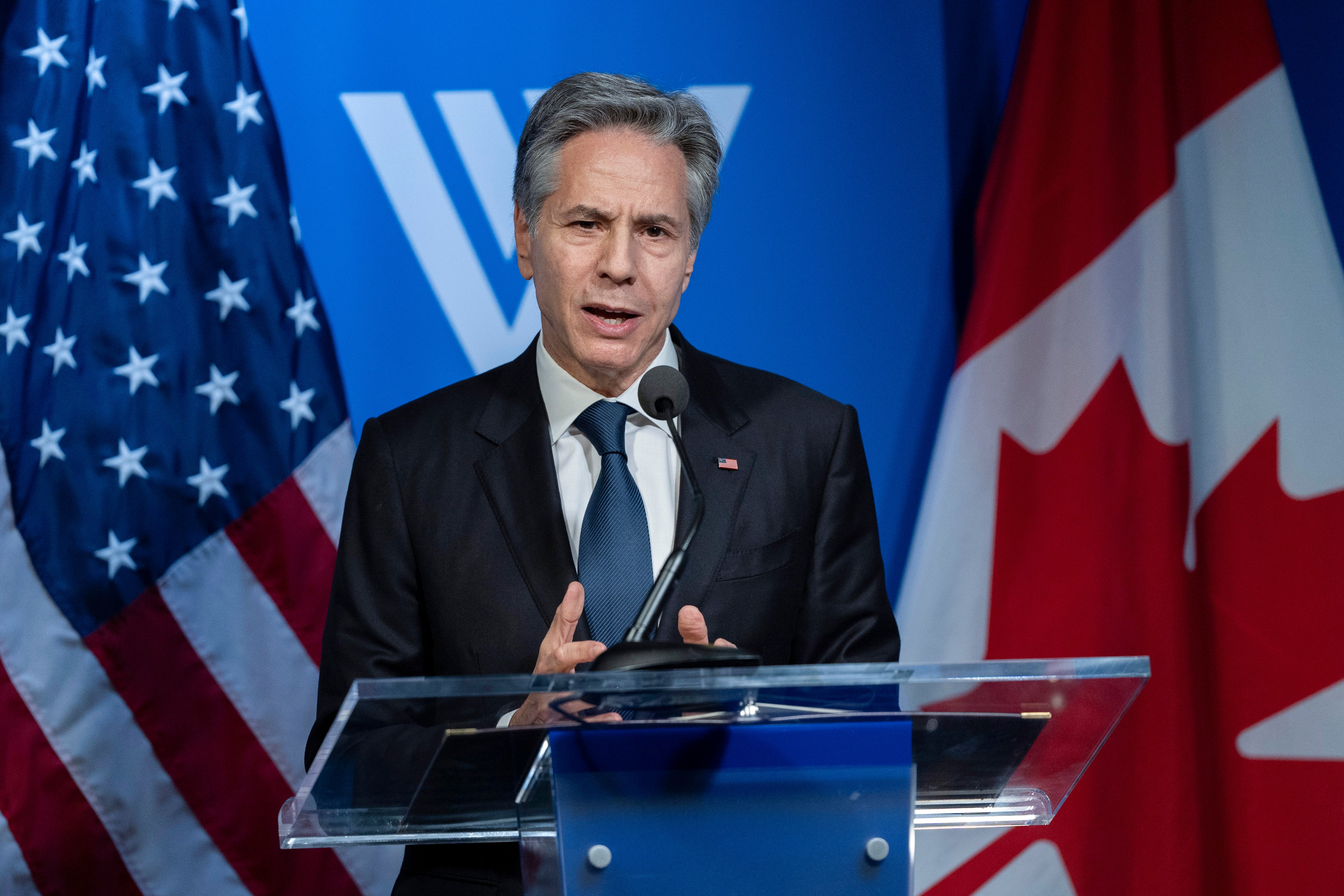Alexei Navalny wife’s message to Putin after Russian opposition leader dies in prison
Widow of prominent anti-corruption activist calls on international community to come together to fight against ‘horrific’ Russian regime
Vladimir Putin and his friends will not go unpunished, an emotional Yulia Navalny warned in her first comments since her husband Alexei’s death was announced.
Ms Navalny choked back tears as she addressed the Munich Security Conference on Friday afternoon. Earlier, the Russian prison service said Navalny, opposition leader and fierce Putin critic, collapsed and died after becoming unwell during a walk.
In her speech, his wife called upon the international community to come together and fight against the “horrific regime” in Russia.

The Kremlin has been accused of a “brutal” assassination, with 47 year-old Navalny’s death sparking outrage among world leaders.
The prominent anti-corruption activist had been serving his sentence at an Arctic penal colony. The Siberian prison service said he “almost immediately lost consciousness” after becoming unwell but no cause of death has been revealed.
Officials said medical staff had been called, but that they were unable to resuscitate him.
Antony Blinken, the US secretary of state, said Navalny’s death “underscores the weakness and rot at the heart of the system that Putin has built”.
He met with Ms Navalny at the security conference and expressed his condolences and“reiterated that Russia is responsible for his death,” the state department said.

Rishi Sunak said it was “terrible news”, adding that Navalny had demonstrated incredible courage throughout his life.
“My thoughts are with his wife and the people of Russia, for whom this is a huge tragedy,” he added.
Justin Trudeau, Canada’s prime minister, said Navalny’s death served as a reminder to the world what a “monster” Putin is.
“He was such a strong fighter for democracy, for freedoms for the Russian people,” he said.
“It really shows the extent to which Putin has, will crack down on anyone who is fighting for freedom for the Russian people,” Trudeau said. “It is a tragedy and it’s something that has the entire world being reminded of exactly what a monster Putin is.”
Navalny had become the leading figurehead for the opposition against Putin in Russia, organising anti-Kremlin protests and serving several stints in jail.
He first came to prominence as a blogger in 2010, publishing investigations into corruption in Russia. As Navalny’s team sought confirmation of his death and warned against Kremlin propaganda, Latvian president Edgars Rinkevics was among those who noted that his death would amount to being “brutally murdered by the Kremlin”.
The Kremlin has said that it had no information about Navalny’s death, but that Putin had been informed.
Navalny had been sentenced to 19 years in a penal colony around 40 miles from the Arctic Circle on charges his supporters say were politically motivated.
He was moved from his former prison in the Vladimir region of central Russia in December to the “special regime” penal colony, which has the highest security level of prisons in Russia.
The political agitator has been behind bars since January 2021, when he returned to Moscow after recuperating in Germany from nerve agent poisoning that he blamed on the Kremlin.
Before his arrest, he campaigned against official corruption, organized major anti-Kremlin protests and ran for public office.

Over the years, Navalny faced physical attacks, repeated arrests, investigations, and criminal proceedings.
The assassination attempt, via Novichok poisoning in Russia resulted in him being evacuated to Germany in a coma for life-saving treatment.
The United Nations Human Rights Office urged the Russian authorities to ensure that a credible investigation into the death was carried out.
"If someone dies in the custody of the state, the presumption is that the state is responsible - a responsibility that can only be rebutted through an impartial, thorough and transparent investigation carried out by an independent body," spokesperson Liz Throssell said. "We urge the Russian authorities to ensure such a credible investigation is carried out."
Russia’s Investigative Committee has launched a procedural probe into the death, the Investigative Committee said.
Join our commenting forum
Join thought-provoking conversations, follow other Independent readers and see their replies
Comments

Bookmark popover
Removed from bookmarks